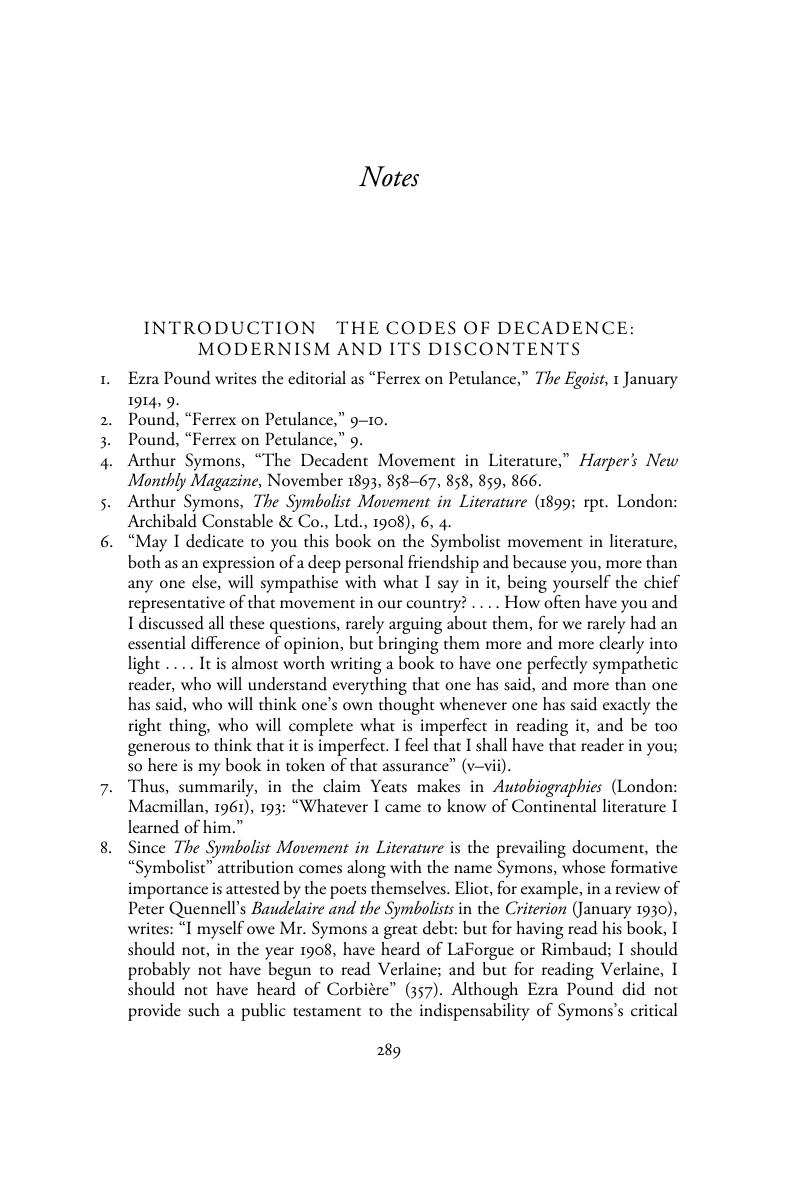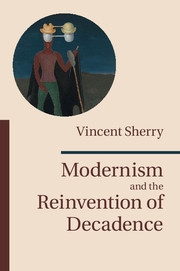Book contents
- Frontmatter
- Dedication
- Contents
- Acknowledgments
- Introduction The Codes of Decadence: Modernism and Its Discontents
- Chapter I The Time of Decadence
- Inter-chapter The Cultivation of Decay and the Prerogatives of Modernism
- Chapter II The Demonstrable Decadence of Modernist Novels
- Inter-chapter Imagism
- Chapter III Ezra Pound: 1906–1920
- Inter-Chapter Reforming Decadence: Late Romanticism, Modernism, and the Politics of Literary History
- Chapter IV T. S. Eliot: 1910–1922
- Afterword Barnes and Beckett, Petropi of the Twilight
- Notes
- Index
- References
Notes
Published online by Cambridge University Press: 05 October 2014
- Frontmatter
- Dedication
- Contents
- Acknowledgments
- Introduction The Codes of Decadence: Modernism and Its Discontents
- Chapter I The Time of Decadence
- Inter-chapter The Cultivation of Decay and the Prerogatives of Modernism
- Chapter II The Demonstrable Decadence of Modernist Novels
- Inter-chapter Imagism
- Chapter III Ezra Pound: 1906–1920
- Inter-Chapter Reforming Decadence: Late Romanticism, Modernism, and the Politics of Literary History
- Chapter IV T. S. Eliot: 1910–1922
- Afterword Barnes and Beckett, Petropi of the Twilight
- Notes
- Index
- References
Summary

- Type
- Chapter
- Information
- Modernism and the Reinvention of Decadence , pp. 289 - 318Publisher: Cambridge University PressPrint publication year: 2014



